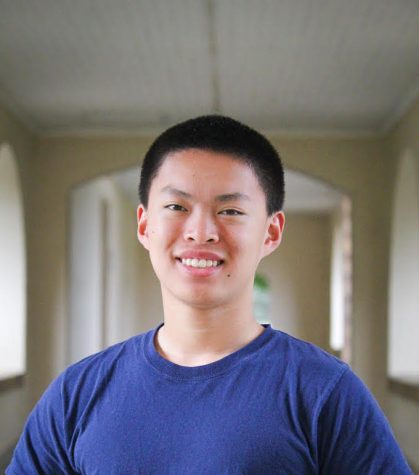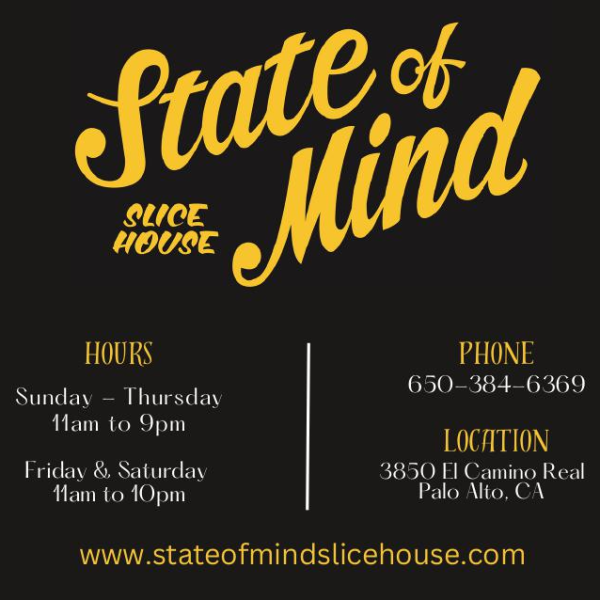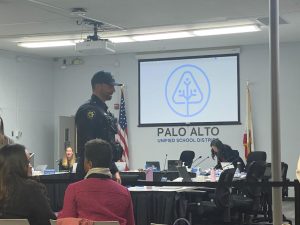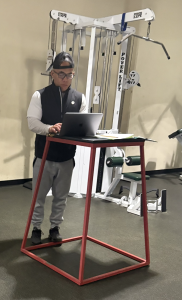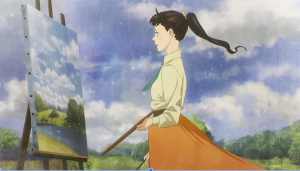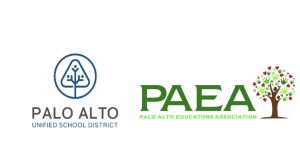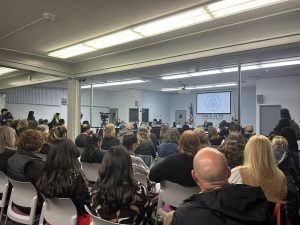Shultz, “tireless advocate” for students and counselor of 26 years, to retire
June 4, 2020
Sitting in front of a computer in her makeshift home office, guidance counselor Susan Shultz turns on the camera and greets me with a welcoming smile that has brightened student days for the past 26 years.
She prefaces the interview by telling me that retirement is a tough topic for her to talk about, especially given the school closure.
“I’ve been at Paly kind of half my life, and it’s a very mixed feeling,” Shultz said. “It’s very bittersweet. I love Paly. I love the students. I love the community. It’s tough for me. … It’s a tough way to end things for everybody.”
Despite this hardship, Shultz said, it’s now time to embrace her retirement and take it head on.
“I got to face it,” Shultz, whose last day on campus will be Friday, said. “I’m a counselor, I gotta face these things.”
Retirement
Despite knowing that her time to leave Paly was coming soon, thoughts on retirement have taken up little space in Shultz’s mind; focused on making sure her class — Paly’s Class of 2020 — was taken care of, there just wasn’t much time for it.
“It’s weird — it hasn’t totally set in with me,” Shultz said. “When I took my class four years ago when they were freshmen, I always knew I would not leave them. I would stick with them for four years. That was always my plan.”
Now, coming to terms with that reality has only become ever more so daunting for Shultz.
“My mind is so focused on making sure my seniors have what they need and do what they need and enrolling incoming ninth graders and what’s going on in my life,” Shultz said. “I don’t think a lot about it. And now I’m forced to more and more.”
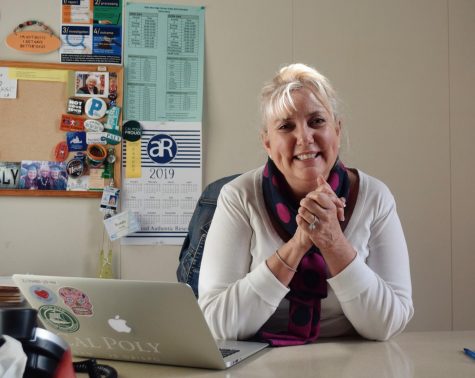
As the school year comes to a close, Shultz says she is showing support and gratitude for her senior class, and often times gets emotional during her Zoom calls with them.
“I cry daily now. I cry in several Zooms a day,” Shultz said. “I’m saying goodbye to a lot of my seniors.”
For Shultz, being away from her senior class, co-workers and community only makes her retirement harder.
“I want to be at school right now,” Shultz said. “I want to be with my seniors. I want to be with my co-workers. I want to be on the Paly campus.”
Less well-known is Shultz’s love for her old office in the Tower Building, which, although she no longer is occupying since moving to the new library, still remains in her heart.
“I’m very emotionally attached to the tower building,” Shultz said. “I had the most beautiful office in the Tower Building with French doors forever. It was beautiful. … To this day it is tough for me to go in the Tower Building. I get teary-eyed.”
Shultz says that, with the Covid-19 pandemic and the school’s response, the circumstances this year are especially difficult for herself and her seniors.
“Especially the seniors, right?” she said. “You work so long and so hard for something and then it wraps up like this. … I don’t get to see my students or the staff I’ve worked with for so long. It’s tough. It’s tough.”
Still, Shultz said, she was glad to see her senior class graduate and continue on from Paly at the end of her career.
“It’s, again, very bittersweet, that’s for sure,” Shultz said.
Mental Health
Shultz’s greatest goal and lasting hope for Paly is for its students to remain healthy — especially mentally.
According to Shultz, mental health hasn’t always been a focus at Paly, but throughout her career it has transformed into one of the largest considerations for counselors and students alike.
“The student body’s issues and concerns became more complex,” Shultz said. “It pushed me and everybody else to constantly grow.”
One part of this growth was a change to the bell schedule and school start time — Shultz was involved in the decision to implement a later start time and the block schedule into Paly.
“When I started at Paly 8,000 years ago, we started school at 7:45 a.m., that’s crazy for teenagers,” Shultz recalled. “So we went to the later start time. I realized it’s still not great, but we’re moving towards 8:30 a.m. now, which is great.”
These developments have allowed Shultz to push the implementation and importance of student’s mental health at Paly, and contributed to the stronger state of the Guidance Department today.
“If you’re not healthy, you can’t do school, you can’t do life,” Shultz said. “I mean, that’s something I’m really proud of, is just continuing to push that [mental health] ahead.”
History
Shultz grew up with two loving parents and was the first in her family to graduate from college. High school, however, was not a walk in the park for Shultz.
“It wasn’t easy for me,” Shultz remembers. “But I wasn’t one that sat there and said, ‘Oh, it only took them 15 minutes.’ What I said is, ‘Wow, this is gonna take me longer, I better get going on it.’”
This mentality of hard work and dedication paid off for Shultz, even going beyond high school and college. Shultz firmly believes that hard work is the key to success in any endeavor, not just in school.
“I realized that, you know, I’m not a great test taker — but I do what’s asked of me, and sometimes a little more, and I’ll continue to move on because of it,” Shultz said. “Words of wisdom to an average kid is just keep pushing yourself, keep working hard. Working hard is so going to pay off. Hard work does a lot for you.”
Early on, Shultz knew that she had a goal in mind. At the time, she didn’t know that it was Paly, but she dedicated herself to reaching that goal — in addition to hard work in school, she worked two jobs to pay for her education.
“I’ve had a job since I was 16 years old, which I think is probably part of the reason why I want to retire when, one would say, kind of fairly young,” Shultz said. “Much of that time I was working two jobs, including when I was in grad school, because that’s what I had to do.”
After graduating from college with a bachelor’s degree in psychology and sociology, Shultz knew from the moment that she first began teaching that she wanted to go on to teach children and help nurture them throughout one of the most important phrases of their life: the teenage years.
“I wanted to teach and I spent some time teaching and I realized, wow, this is so darn difficult,” Shultz said. “But I found that I really loved kids. I knew I wanted to work with kids, especially older kids, teenagers.”
Shultz returned to college and received a master’s degree in Educational Counseling and a counseling credential. Shortly afterwards, Shultz landed at Paly, where her hard work over the years has not gone unnoticed.
“Susan is a natural leader who has served Paly in myriad ways — from school and district committees, TA Coordinator, lead counselor, part of the administrative team and more,” Sandra Cernobori, a college advisor at Paly, stated in an email. “Susan is a tireless advocate for all students; she uses her voice to question policies and processes that don’t keep students’ best interests in the forefront of decision making. ”
Cernobori continued to state that Shultz “can be counted on to help and cover for anyone in a really selfless way but doesn’t seek recognition.”
These efforts are not only noticed within the Guidance Department and College and Career Center, extending throughout the school as well.
“Ask any Paly teacher, they’ll tell you how special she is,” Cernobori said. “While she’s the heart of the Guidance department, all of Paly will feel her loss.”
This sentiment is closely mirrored in Shultz’s own view; since she started working for Paly, Shultz has never worked anywhere else — she’s been working with the Paly community for a majority of her career and considers them family.
“When you’ve worked at Paly as long as I’ve worked at Paly, they’re your family,” Shultz said. “I can’t imagine really being anywhere else. I mean, my heart will always be at Paly. It really will.”
Person Before Paper
Perhaps the most important quality that Shultz hopes to help students understand is that there’s so much more to a person than their scores and grades on a transcript — students are not, she says, defined by them.
“I think just as important [as grades], in regards to health, is being good, nice, honest, compassionate, loving people,” Shultz pressed. “To me, who you are in your heart is more than who you are on a piece of paper that is your transcript.”
Indeed, Shultz says, grades are important. But they are not the be-all-end-all for students; rather, being a person comes before all.
“Your grades on a piece of paper is not everything about you,” Shultz said. “It’s just not. It does open doors for your future, sure, can’t argue with that. … But in the end: Are you healthy? What kind of person are you? What are you going to contribute to this world?”
Shultz also stressed the ability to form relationships and work with others as an important trait.
“If you have the most wonderful, brilliant transcript in the whole wide world, and you can’t get along with anyone else, that’s going to be pretty darn tough,” Shultz remarked.
Ultimately, this is the view that Shultz holds both for herself and for others: Someone may have outstanding grades, experience and references on paper, but what matters most in the end is how they help not only themselves but others.
“It’s about who you are, and how you present yourself and how you work with people,” Shultz said. “It’s how you work with people that are different than you. How you work with people that are difficult to work with. That’s to me what’s most important. … That’s going to get you far in life.”
Going Forward
While one major chapter closes in Shultz’s life, another one is opening in its place: After retirement, Shultz plans to move to Arizona, in about a year’s time.
“We [Shultz and her husband] are relocating to Scottsdale, Arizona,” Shultz explained. “We’re actually building a home there. My husband’s a big golfer, and I’m a big fan of warm weather. So we’re going in search of warm weather and golf.”
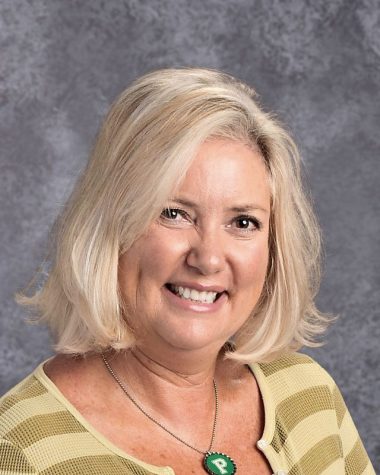
The decision, Shultz said, was not made easily, as she has been living in the Bay Area for a large majority of her life.
“I also have bittersweet feelings about that [moving to Arizona], in that I’m born and raised in the Bay Area; I’ve never lived anywhere else,” Shultz said. “A lot of my friends are still here. A lot of my connections, my Paly connections, everybody’s here. So it’s gonna be a big deal for me to move.”
In light of these lasting attachments, Shultz says that she plans to return in coming years to visit friends, family, the weather and Paly.
“I’ll come back. For sure,” Shultz said. “They’re not getting rid of me. I’ll come back and I’ve offered to help in any way I can.”
In her stead, Shultz trusts that the counseling department will continue to perform and improve to aid students throughout their high school years.
“I have the utmost faith in the department,” Shultz said. “The TA steering Committee and the entire Guidance Department works tirelessly to meet the ever-changing needs of our students. … I trust the people in my department to keep pushing things forward for sure. I have a lot of faith in them.”
Before moving away, however, Shultz has one last Paly event to attend: her senior class’ December graduation.
Graduation has always had a special place in Shultz’s heart, signifying the culmination of all the hard work that her class had done over their years at Paly.
“Graduation was always my favorite,” Shultz stated. “It is such a special event. It signifies so much — a culmination of so much hard work and a look into so many bright futures.”
As for the December graduation for seniors, Shultz plans on attending and cheering her students on when the time comes.
“I wouldn’t miss it for the world,” Shultz said.


